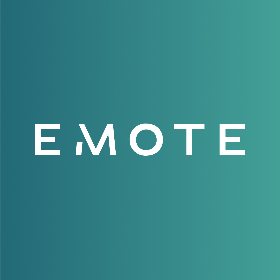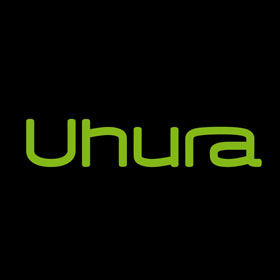
How to Run a Remote Digital Marketing Agency
Are you thinking of launching & running a remote digital marketing agency? Then, you already know that the remote work revolution is transforming the entire digital marketing industry—even though some of the biggest brands & companies have started to call their teams to their offices.
That surge in remote work transforms the landscape of marketing agency remote jobs as well. Considering that remote working offers exciting opportunities for aspiring entrepreneurs is not surprising.
So much so that a 2023 report by Upwork found that 64 million people performed remote work, just in the United States—that’s big! That trend also means the number of people running remote work has also risen. And we cannot ignore that big trend & fact.
Now, we’ll explore the benefits and challenges of establishing a remote digital marketing agency. Ready?
What’s Inside
- What Is a Remote Marketing Agency? What’s the Difference?
- How to Start a Remote Digital Agency: First Steps to Take
- Hire the Right People (Self-Responsible & Used to Work Remotely)
- Invest in Tools & Tech
- Standardize Internal Communication
- How to Run a Remote Digital Agency: Next & Essential Steps to Take
- Consider the Time Differences
- Create a Flexible Space—Get Rid of Strict Working Hours
- Get an Online HR Tool
- Get Feedback from Your Team
- Last but Not Least: Invest In Employee Well-Being
- Going Remote: The Pros and Cons for Agencies
What Is a Remote Marketing Agency? What’s the Difference?
As the name suggests, a remote digital marketing agency is one where team members work “entirely remotely,” with no physical office space, collaborating online through various communication or management tools or apps.
When comparing a remote digital marketing team to a traditional setup, the remote structure is undoubtedly different from a conventional office environment. However, remote digital marketing companies and traditional agencies often share many similarities in core areas of operation.
Here’s a quick chart comparing traditional marketing agencies with remote digital marketing teams:
How to Start a Remote Digital Agency: First Steps to Take
Given that 87% of workers contemplating a change in employment are interested in hybrid or fully remote roles as of 2022, it is not surprising that starting a remote digital agency is on your mind.
What’s more, we know from Deloitte’s 2023 Gen Z and Millennial Survey that 77% of Gen Z and 75% of millennials already work a remote schedule. And they state that they would consider changing their jobs if they were asked to work on-site—full-time.
Gen Zs and millennials clearly value remote and hybrid work and see its benefits. Threequarters of respondents who are currently working in remote or hybrid roles would consider looking for a new job if their employer asked them to go on-site full-time.
After all these, it’s high time to guide you through the initial steps, equip you with essential information, and provide valuable insights to help you build a thriving remote team.
Hire the Right People (Self-Responsible & Used to Work Remotely)
A home truth is that remote agencies can tap into a global talent pool, allowing them to find highly skilled individuals regardless of their location. This can lead to diverse teams capable of tackling complex marketing challenges.
However, accessing a wider pool of talent does not always mean building a specialized remote team is a picnic. Sometimes, vetting and ensuring the quality of remote talent can be more challenging compared to local candidates. Cultural nuances and communication barriers might also arise.
So, we recommend you take your time to analyze what your team actually needs and build some vetting lists. At that point, ensure that you have a rigid hiring process leading you to find remote candidates fitting your agency culture.
Invest in Tools & Tech
Yes, the success of a remote marketing agency hinges heavily on its tech stack.
In other words, investing in the right tools and technology is an effective way to streamline workflows, enhance communication, and support a remote digital marketing agency.
Key tools like:
- Video conferencing platforms: Enable real-time collaboration for a remote digital marketing team.
- File-sharing platforms: Allow secure and accessible sharing of essential files and documents.
- Chat & communication software: Supports ongoing communication, making it easier for remote digital marketing companies to maintain team connectivity.
Balancing the costs of these tools with the agency’s budget can be challenging, so finding cost-effective solutions that meet specific needs is crucial.
At that point, we need to remind you that 75% of employees believe that their company’s current remote work tools or technology require upgrades, according to recent Zoom research. That makes that investment more important than you think.
So, before establishing your remote agency, it is best to take a glance at our list of the best tools for agencies.
Standardize Internal Communication
Undoubtedly, standardized communication ensures everyone in your team receives the same information at the same time. It also fosters clarity and reduces confusion while ensuring everyone is on the same page. On the other hand, consistent internal communication practices build trust and transparency among your team. Even in a remote agency setting, building a stronger team culture and a sense of belonging is possible in that way.
Here are a piece of recommendations to streamline remote agency communication:
⚡️ Create guidelines for preferred communication methods for different situations (e.g., email for formal announcements, instant messaging for quick updates),
⚡️ Via cutting-edge tools, facilitate organized info-sharing & task management.
⚡️ Encourage open and honest communication within the team by creating opportunities for feedback and discussion.
⚡️ Regularly scheduled virtual meetings (e.g., weekly team huddles and project updates) for real-time discussion.
How to Run a Remote Digital Agency: Next & Essential Steps to Take
So, building a remote digital agency team requires thoughtful planning and a strong foundation. While flexibility is a major perk, ensuring team cohesion and productivity involves setting clear expectations and prioritizing effective communication.
The benefits are clear: 70% of professionals say that focused work is easier when remote, and 65% report reduced stress levels in a remote setting.
With the right strategies, you can create an environment where team members feel supported, focused, and motivated to succeed, even from a distance.
Let us discover the right strategies:
Consider the Time Differences
Even the phrase “time zone” can present a unique challenge for dispersed teams. As we all know, real-time collaboration can be difficult due to time zone disparities.
Effective communication can be ensured, nevertheless, by acknowledging the existence of time differences and implementing some thoughtful fixes.
It is wise to use communication tools to share documents, leave messages, and work together asynchronously on their schedules.
Establishing clear communication protocols and deadlines or designating core work hours for the entire team also works.
Create a Flexible Space—Get Rid of Strict Working Hours
As we mentioned earlier, the remote work model provides team members at an agency with greater flexibility in managing their work schedules and personal commitments.
This flexibility is one of the key advantages of a remote marketing agency, appealing to individuals seeking a healthier work-life balance.
To successfully run a remote agency, it’s essential to uphold this culture and respect that balance. How?
Asking for work during leisure time or holidays, or expecting employees to work overtime simply because “they’re just working from home” can disrupt this culture and lower morale.
Ultimately, one of the best approaches for how to run a remote agency is to allow team members to manage their workload and establish a schedule that fits their personal needs.
Get an Online HR Tool
As already known, online HR tools can automate many tasks related to human resources—payroll, benefits administration, time tracking, and performance management. They also free up valuable time for you/your HR team. More importantly, online HR tools enable each team member to access HR info and services from anywhere with an internet connection.
What’s more, many tools available offer some features like chat rooms, online surveys, etc. It fosters communication between HR and teams across diverse locations.
Get Feedback from Your Team
Feeling heard and valued through feedback is important for remote workers as well. That’s why we recommend remote agency owners regularly request feedback.
Regular feedback also helps you discover unidentified challenges & opportunities that might be missed. Finding them results in more efficient use of resources and a more satisfying remote work environment.
Last but Not Least: Invest In Employee Well-Being
As we already mentioned, the lack of physical separation between work and personal life in a remote setting can lead to work encroaching on personal time, making it difficult to “switch off” and maintain healthy boundaries.
In addition to respecting boundaries and avoiding work-related communication outside of work hours, we recommend you support them by investing in their mental health. Offering resources and support for mental health and well-being is the best way to encourage employees to prioritize well-being alongside their professional goals.
At that point, we must remind you that remote working does not mean offering mental wellness on its own. Here is a quick takeaway from Deloitte’s abovementioned survey:
While most harassment and microaggressions are taking place in-person in the workplace, about a quarter of both generations say they are facing these behaviors while working remotely, indicating that organizations should create an environment that builds trust, recognizes, and promotes inclusive and ethical behaviors, and encourages reporting in both in-person and virtual work settings.
Going Remote: The Pros and Cons for Agencies
Why are so many agencies (both digital and advertising) transitioning to a remote setup for their digital marketing teams, effectively removing the geographical limitations of a physical office?
The answer isn’t far-fetched. As you already know (and experience maybe), remote companies have gained popularity due to their undeniable benefits. By building a remote digital marketing team, agencies tap into a broader talent pool, potentially lower overhead costs, and offer greater flexibility for team members and clients.
However, it’s essential to examine this trend from a balanced perspective, weighing both the advantages and challenges.
Let’s dive into the pros and cons of running a remote digital marketing agency:
Prioritizing Work-Life Balance
The remote work model in digital marketing companies provides a great chance for increased work-life balance. In addition to achieving this balance, which is only possible with both employees’ and employers’ approaches, remote work itself offers greater flexibility in scheduling.
At that point, we need to remind you that the accessibility of technology and the pressure to be constantly available can contribute to an “always-on” culture, potentially leading to burnout and hindering work-life balance.
Retaining More Employees
While remote work offers attractive benefits like flexibility and a wider employee pool, it also presents opportunities for retaining employees compared to traditional agencies. Since remote work eliminates the daily commute, it leads to increased employee satisfaction and improved work-life balance. This can contribute to lower employee turnover.
Best part? Eliminating the commute frees up time and reduces stress, leading to increased productivity and improved well-being for employees.
Reducing Outgoings
Maybe the first & boldest reason to go beyond seems to be the reduced overhead costs. Without the expenses associated with a physical office, such as rent, utilities, and office equipment, remote agencies can operate with lower overhead costs. According to a 2022 study by Owl Labs, remote work can save businesses an average of $11,000 per employee annually, primarily due to reduced office space expenses.
It also refers to increased profitability for the agency or competitive rates for clients.
While physical office expenses might decrease, investments in remote working modules, like communication & cybersecurity tools, can add up. Additionally, depending on location, offering competitive salaries to remote talent might negate the cost savings.
Regular feedback also helps find out unidentified challenges & opportunities that might be missed. Identifying them translates to better resource allocation and a more positive remote work experience. Mentoring software can facilitate structured feedback and provide a platform for continuous employee development, ensuring team members feel supported.
Final Question: Worth It?
Going remote is not a guaranteed path to success for every agency; in other words, it is not possible to say that establishing a remote digital agency always gives you the expected & worth your investments.
Before making up your mind about launching a remote marketing agency, carefully consider your specific needs, culture, and target market. Embrace the potential benefits while strategizing to mitigate potential challenges. Open internal & external communication, robust infrastructure, and a focus on building a culture are key ingredients for success in remote digital agency areas.
What if you run a remote agency and complete all of these tasks correctly beforehand? As one of our member agencies, In Marketing We Trust, has, you might see excellent results.
In Marketing We Trust has been shortlisted for the Australian Financial Review’s BOSS Best Places to Work Award. The managing director of the organization, which has operated entirely remotely since 2013, Frederic Chanut, stated:
As a service provider, our most important assets are expertise and experience, meaning our people. Based in over 15 countries our employees are recruited based on their abilities – not drive time to the office. That’s why we have a more skilled digital marketing team because by not factoring in location, we’re able to choose the best people for the job.
He also added:
As a fully remote company with more than 8 years of experience, we can confidently say that we are still going through learning and adaptations in order to make sure that our team members are not only accustomed to but also thriving within the company and its remote setup.
So, good luck in starting your remote agency.





















